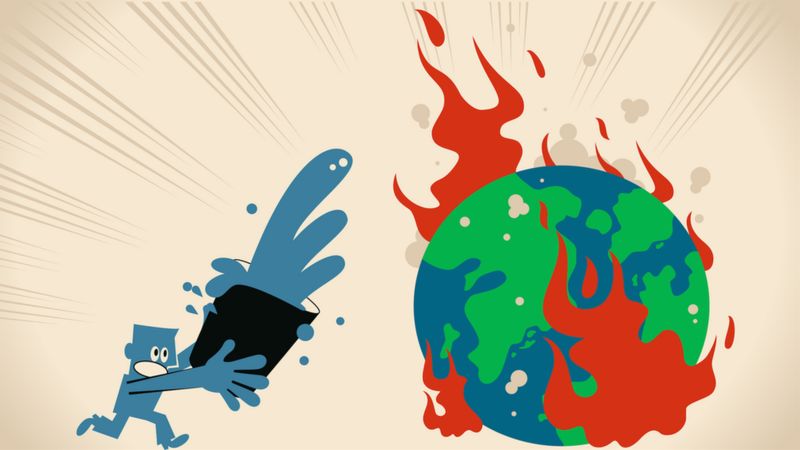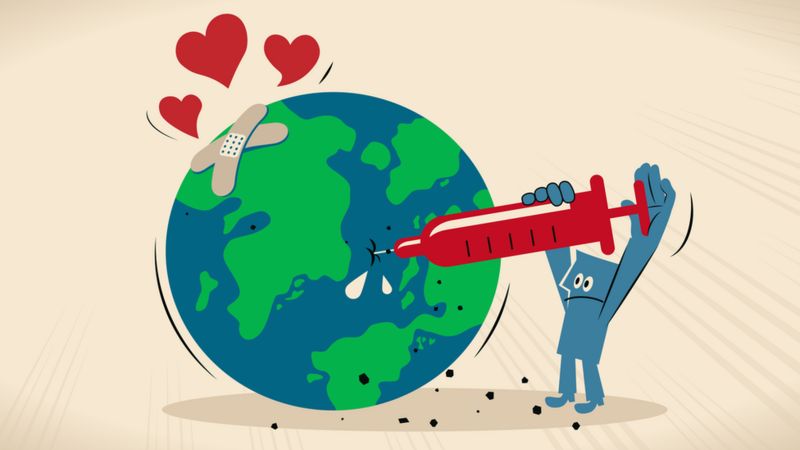COP26 is taking place in Scotland this year and expectations for this event are increasingly high. But what exactly does this climate change conference have? This article will help you to understand important issues about many climate change debates.
What is COP26?
The COP - an acronym for Conference of the Parties - is the annual conference that brings together 197 nations around the world to talk about climate change and how those countries and people are prepared to deal with that change.
It is part of a UN resolution on climate change - an international agreement signed by almost every country in the world that aims to reduce the impact of human activities on climate change.
COP26 will be the 26th meeting since the agreement came into force on March 21, 1994. This year it will be held in Scotland in the Scottish capital, Glasgow, between November 1-12.
How important is COP26?
It is very important. COP26 It will be the first meeting to look at the steps that have been achieved so far or failed to take since the Paris Agreement of 2015 on climate change. (Paris Climate Agreement).
The agreement, also known as the Paris Accord, aims to put in place measures to prevent climate change. The agreement recognizes that if global warming continues to rise above 1.5C above the pre-industrial climate, there will be little change.
For any other plan, you have to rely on this plan, and that is where the COPs meeting takes its place. Think together to discuss different approaches and make sure everyone is accountable.
At the Partis Conference - COP21 - the basic goals were set to avoid the negative effects of climate change. All countries agreed:
- Reducing the air leading to an increase in temperature
- Increase the production of renewable energy
- The temperature rises below the "2C (3.6F) temperature range and the goal is to not exceed 1.5C (2.7F) degrees, and
- Investing billions of dollars to help poor countries cope with the effects of climate change.
They also agreed that every five years, they will be reviewing the progress and steps reached. The first meeting was to be held in 2020, but in the wake of the corona catastrophe, the COP26 summit was postponed until 2021.
What difference has the Corona disaster made?
The catastrophe has had a profound effect on the activities of the summit, not only leading to the postponement of the entire year but on the other hand, Covid 19 has caused people to rethink what life will be like after the catastrophe. And to raise a lot of questions, do we need to use more aircraft? or people from the city to the countryside to be the future plan?
Already, US President Joe Biden (who reversed his predecessor's decision to withdraw from the Paris agreement), has prioritized climate-friendly policies during his plans to restore the United States, including the economy. And when they meet at the COP26 summit, decision-makers are expected to come up with long-term plans to tackle climate change - and those plans are expected to be ambitious and achievable.
What are the prospects for COP26?
A lot of things are expected. Firstly there are many unresolved issues from the previous COP25 summit held in Madrid, Spain.
You will recall, a Swedish activist Greta Thunberg gave a touching speech at the time, warning world leaders of the dangers of not taking the weather seriously and ignoring the scientific evidence.
But even then, it could not help the country reach an agreement on controversial issues. For example, poor nations are among the first nations to respond to the effects of climate change. Rising sea levels are slowly eroding the islands, and droughts and heat are causing crop failures.
Therefore, towards the COP26 summit, more than 100 developing nations will set their own requirements which include:
- Funding (from rich countries) for climate change mitigation.
- Compensation (from rich countries) for the consequences, and
- Money (from rich countries) to help them revive the economies of those countries.
Now imagine if it is one of the richest countries. Together they have set aside $ 100billion by 2020 to address these needs. But now it is 2021 and they have managed to raise $ 79billion so far, and the bulk of that money is loans (which should be repaid), and not grants (which there is no repayment).
The issue - known as climate change funding - will be one of the issues that will spark a heated debate at the summit.
Another issue that will spark debate is how best to address 'carbon markets' and 'carbon credits' systems. These are the systems or mechanisms that will allow them. Therefore, COP26 will have a huge mountain to climb even before it starts looking at new issues in its agenda.
A major priority will be to get countries committed to reducing carbon emissions by 2030.
Many initiatives are expected to be put in place to address specific challenges such as eliminating coal use and protecting the environment.
This time activist Greta will not be present but there are rumors that the Pope may attend the meeting. In any case, there is a lot to look for. Air pollutants pay as compensation or money for air-conditioning and for rich countries to sell 'carbon credits' or to issue permits to produce a certain amount of bad air. As a good thing, but imagine, rich countries are paying for a 'climate pollution license' instead of implementing real change? And who decides how much land the land should pay, for example for deforestation?
Even if this Glasgow conference will be able to agree on all of the above, so that everyone is on the same path, it is necessary to set a specific time for all the planned plans. You could say it is easy to implement but the truth is not.






